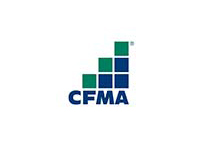
FAQ
1. My daughter/son has some investment income and has received a 1099. Do they have to file a return?
Whether a dependent child must file a tax return depends on several factors, mainly the amount of gross income they receive. The IRS website has a helpful article titled, “Tax Rules for Children Who Have Investment Income,” which can be accessed here: http://www.irs.gov/uac/Newsroom/Tax-Rules-for-Children-Who-Have-Investment-Income
2. I was laid off during the year and received unemployment benefits. Do I have to report this as income?
If you meet the requirements of having to file a return then yes, you must include this as income. Your state department of labor will issue you a Form 1099-G. You have the option of having federal and state income taxes withheld.
3. My son/daughter is 22 years old and is in a community college; but, still lives with me. Can I still claim him/her as a dependent?
In general, a full-time college student living at home can still be claimed as your dependent. However, the rules on dependency exemptions are complex. There are many factors that are considered to determine whether someone is eligible to be claimed as a dependent on your tax return. The IRS website has a helpful tutorial which walks you through the tests for dependents. Please click here: http://apps.irs.gov/app/understandingTaxes/hows/tax_tutorials/mod04/tt_mod04_01.jsp
4. I wrote a check to a charitable organization on 12/31. Since this didn’t clear my bank until the following year, can I still deduct it this year?
The tax year to deduct a charitable gift is set by the date you deliver the gift. If you mailed the check or delivered it personally to the organization by December 31st then you should be able deduct it even though it did not clear your December 31st bank statement.
5. I am covered by a pension at work or I contribute to a 401k plan at work. Can I still make a contribution to an IRA?
Yes, you can still make a contribution to a Traditional IRA, but you might not be able to deduct your contribution. If your earned income is within contribution limits, you can contribute to a ROTH IRA. This link to the IRS website explains in further detail: http://www.irs.gov/Retirement-Plans/Plan-Participant,-Employee/Retirement-Topics-IRA-Contribution-Limits
6. What are the differences between a Roth and a traditional IRA? Are the contribution limits the same?
The fundamental difference between a ROTH and a Traditional IRA is the timing of when the money is taxed. With a Traditional IRA, you may receive a tax benefit up-front, but have to pay tax upon withdrawal. With a ROTH IRA, there is no up-front tax benefit, but withdrawals may be tax free. The IRS website has a useful chart which outlines the differences between a Roth and Traditional IRA that you can access here: http://www.irs.gov/Retirement-Plans/Traditional-and-Roth-IRAs
7. Where can I get information on social security benefits?
Please visit the Social Security Administration website for help on this topic. http://www.ssa.gov/planners/retire/agereduction.html
8. Should I itemize or use the standard deduction?
Normally you would use the method that yields the lowest total tax; however, there could be certain circumstances in which you are forced to choose one or the other. One example of this would be if you are married as of the last day of the year, but you and your spouse file separate tax returns instead of filing jointly. In this case, you both have to either itemize or take the standard deduction.
9. Can I deduct the loss on the sale of my home?
Generally, the answer is no. Losses from the sale of personal-use property are not deductible. If you have used a portion of your home for business, you might be eligible to take a loss on the business portion of your home.
10. Do I have to pay tax on the gain on the sale of my home?
If you sell your personal residence for a gain, you may be eligible to exclude up to $250,000 ($500,000 for married filing joint returns) of the gain from your taxable income. Please see this helpful link from the IRS website which provides more detail http://www.irs.gov/taxtopics/tc701.html
11. I have a rental property, which expenses can I take as deductions?
If you have a rental property, the expenses incurred in renting the property are generally deductible, within limits. Examples of expenses that are deductible from the rental income include depreciation, repairs, cleaning and maintenance, travel, advertising, insurance, legal and professional fees, management fees, mortgage interest, taxes, utilities, lawn maintenance, security, and any other expenses directly related to the renting of the property.
12. How do I account for my non-cash charitable contributions?
If you itemize deductions on your tax return, you may be allowed a deduction for noncash contributions you make to qualified charitable organizations. The deduction that is claimed should be equal to the fair market value of the item donated. Non-cash contributions over $5,000 require a qualified appraisal. As you donate clothing, household goods, and other noncash items to qualified charities throughout the year, keep a detailed record of the items donated. Goodwill provides a helpful guide to help determine the value of your items: http://www.goodwill.org/wp-content/uploads/2010/12/Donation_Valuation_Guide.pdf. There are limitations to the amount you can deduct each year, and not all items qualify for a deduction.
13. When will I receive my Federal refund?
The IRS has a helpful tool, please click on the link here: https://sa.www4.irs.gov/irfof/lang/en/irfofgetstatus.jsp You will need the taxpayer’s social security number, filing status, and exact refund amount. Many state websites also have this feature.
14. I've never had to get an extension before - What does it mean?
A Federal income tax extension extends your filing deadline from April 15th to October 15th. Anyone can get an extension, but there is a form which must be filed, Form 4868. The extension is only for the filing of the return, and does not extend the deadline for any taxes that might be owed with the return. If you have filing requirements in a state with personal income tax, you might also need to file an extension with that state. Each state has its own requirements for extensions. Like a federal extension, a state extension only extends the time to file, and not the time to pay.
15. What deduction(s) can I take for my home office?
Beginning with the tax year 2013 there is a new simplified method that allows you to deduct $5.00 per square foot up to 300 square feet for a total deduction of $1,500. This assumes the home office is in service for the entire year. Under the regular method you can deduct a portion of your home mortgage interest, real estate taxes, repairs, maintenance, insurance, utilities and depreciation on the portion of your home used exclusively as your home office.
16. I sold stock this year for a gain, how much federal tax will I pay?
If the gain is short-term (the stock was held for less than one year), the gain is taxed at your ordinary rate. If the gain is long-term (the stock was held more than one year), the capital gains tax rate depends on your ordinary income tax bracket. 10% to 15% ordinary bracket = 0% capital gains tax rate; 25% to 35% ordinary bracket = 15% capital gains tax rate; 39.6% ordinary bracket = 20% capital gains tax rate. You may also owe an additional 3.8% Net Investment Income Tax (NIIT) if your net investment income is above statutory threshold amounts.
17. What is Net Investment Income Tax?
The Net Investment Income Tax (NIIT) is a 3.8% tax that applies to certain net investment income that is above statutory threshold amounts. Among the threshold amounts are $250,000 for married filing jointly, and $200,000 for single. In general, net investment income includes dividends, interest, capital gains, and rent and royalty income. This is not an all-inclusive list, but these are the most common investment income components that we see with our clients.
18. I have capital losses from a prior year; can I use those to offset capital gains this year?
Yes, capital losses can offset capital gains. Any excess capital losses can be deducted up to $1,500 per year for single or married filing separate taxpayers or $3,000 for married filing joint taxpayers. Any remaining losses can generally be carried forward to future years indefinitely until used.
19. Can I deduct my out of pocket medical expenses?
If you itemize your deductions you can deduct your unreimbursed medical and dental expenses that exceed 10% of your adjusted gross income. If you are 65 years of age or older, the threshold is 7.5% through the tax year ending December 31, 2016.
20. When should I provide my income tax information to you?
It is best to provide to us your information as soon as possible so that we may prepare your return in a timely manner. If there are a few pieces of information that you will not receive until closer to April 15th, or even after, please send us what you have so that we can work on your return and provide you with an estimate of your refund or taxes owed.
21. How do I know what information you will need to prepare my return?
In early January we provide clients with a tax organizer to gather tax information. This organizer is tailored to each client and includes prior year information to assist with gathering current year information. At the client’s request, we can also upload tax organizers into our secure portal system which can be accessed by clicking on “Client Portal” in the menu bar. If you are not a current client and are interested in a free blank tax organizer, please contact our office.
22. Can I deduct estate planning fees?
Yes, if you itemize your deductions. These are combined with other miscellaneous itemized deduction, and a deduction is allowed for any amount that exceeds 2% of your adjusted gross income.
23. I am working on a business plan and about ready to open a business and am not really familiar with the necessary government filings that I am required to complete. Is there something that I can refer to make sure that I am in compliance with the federal, state, and city governmental requirements for income taxes, sales taxes, payroll taxes, etc. as well as annual registrations, etc.
Yes, most of these filings can be addressed at federal and state government websites. We would be happy to assist you with the various required federal and state filings. Please contact our office.
24. How long should I keep tax related records?
Please visit the IRS website at http://www.irs.gov/Businesses/Small-Businesses-&-Self-Employed/How-long-should-I-keep-records
25. What types of vehicle expenses are deductible for my business?
If you use your vehicle for business purposes, you may be eligible to deduct a portion, or all, of the costs of operating the vehicle. There are generally two methods that are used to figure the amount of the deduction. Those are the standard mileage rate method and the actual expense method. If the actual expense method is used, the expenses eligible for deduction include depreciation, fuel, oil, repairs, tires, car washes, maintenance, insurance, registration fees, and taxes. The method used is decided by the taxpayer.










